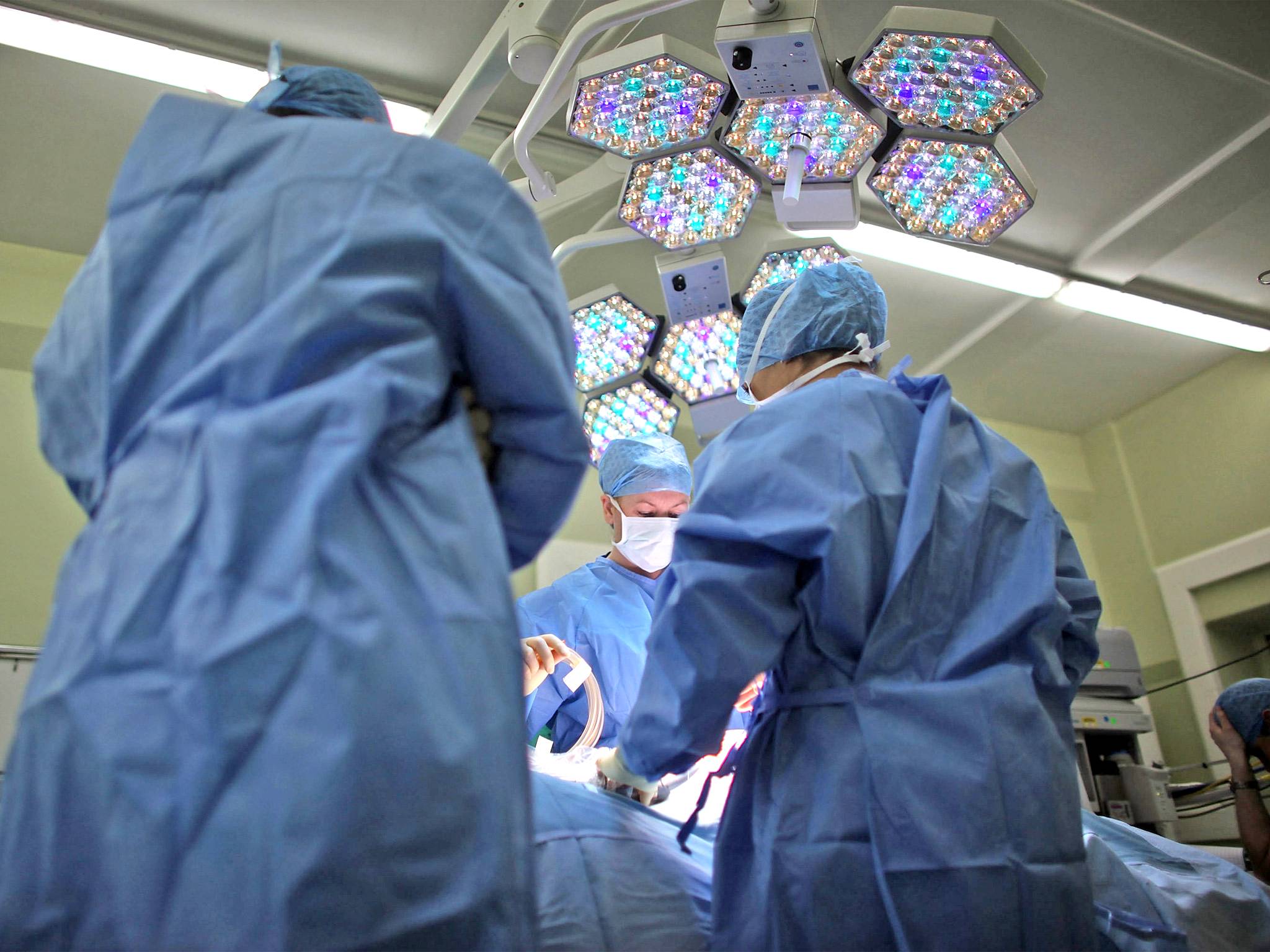Warning over ‘two-tier’ healthcare system amid rise in private patients
Principle of free care is being undermined as paying to access services is ‘normalised’, think tank warns

Your support helps us to tell the story
From reproductive rights to climate change to Big Tech, The Independent is on the ground when the story is developing. Whether it's investigating the financials of Elon Musk's pro-Trump PAC or producing our latest documentary, 'The A Word', which shines a light on the American women fighting for reproductive rights, we know how important it is to parse out the facts from the messaging.
At such a critical moment in US history, we need reporters on the ground. Your donation allows us to keep sending journalists to speak to both sides of the story.
The Independent is trusted by Americans across the entire political spectrum. And unlike many other quality news outlets, we choose not to lock Americans out of our reporting and analysis with paywalls. We believe quality journalism should be available to everyone, paid for by those who can afford it.
Your support makes all the difference.The UK faces a two-tier healthcare system with more people paying for private healthcare as they face long NHS waiting times, a think tank has warned.
Spending on healthcare from non-public funds has grown faster in the UK than in any other G7 country since 1970, according to the Institute for Public Policy Research (IPPR).
The think tank has estimated that around 16 million adults had difficulties accessing NHS services with one eighth, the equivalent of 2 million, of these people being driven to use private healthcare. The figures have been extrapolated from a poll IPPR has carried out with Yougov in November 2021.
The think tank has warned the growing trend towards private healthcare risks creating a “two-tier” system with people able to opt out of long NHS waits if they can pay for it.
The IPPR argues the move towards private healthcare, by those can afford it, will undermine the UK’s universal healthcare system, which is free at the point of use.
It said the risk would be healthcare services in the country begin to “resemble the English education system, where a mediocre standard is available for everyone, but the best is only available to those who can and are willing to pay”.
The IPPR and YouGov poll of 3,466 adults revealed that 17 per cent of respondents said they would go private if they knew they faced a wait longer than 18 weeks, which is the current NHS target, however 59 per cent said they would not be able to afford it.
The IPPR’s report highlighted surging waiting times within mental health services, where emergency crisis services seen a 74 per cent increase in referrals, long waiting times for people with chronic conditions and increased numbers of people reporting they had found it harder to speak to a GP.
Its report comes as the NHS faces a 6.1 million backlog so far this year with Sajid Javid, the health secretary, warning the waiting list will increase until at least 2024.
The IPPR has called for a plan to “revitalise” health and care from the government by investing in hospital beds, community care, boosting staff pay and doubling investment in prevention services by 2030.
The report said: “If political and NHS leaders want to live up to the public’s wishes and democratic expectations, they need to put forward a funding and reform plan that maintains the principles of the NHS – revitalised for the 21st century. That is, they cannot settle with ‘doing the minimum to get through Covid or recovery’ – they must build back better.”
Chris Thomas, IPPR principal research fellow, said: “People aren’t opting-out of the NHS because they’ve stopped believing in it as the best and fairest model of healthcare. Rather, those who can afford it are being forced to go private by the consequences of austerity and the pandemic on NHS access and quality – and those without the funds are left to ‘put up or shut up’.
“The risk is that, in the future, the idea you have to pay to get the best healthcare becomes normalised. This would erode public support and the electoral coalition that has underpinned the success and popularity of our NHS. In turn, this would further embed inequality, leave the NHS more liable to budget cuts, and to the poorly evidenced whims of politicians. Leaders should listen to what the public want and reinvigorate the NHS as a means to ‘universalise the best’ healthcare, for everyone, free at the point of delivery.”
A spokesperson for the NHS said: “Despite pressures NHS staff have continued to provide care to patients with half a million people starting treatment for cancer, millions of routine GP appointments carried out and more people in touch with mental health services than ever and it remains vitally important that if you do have a health concern, you come forward for care as soon as possible.”
Join our commenting forum
Join thought-provoking conversations, follow other Independent readers and see their replies
Comments